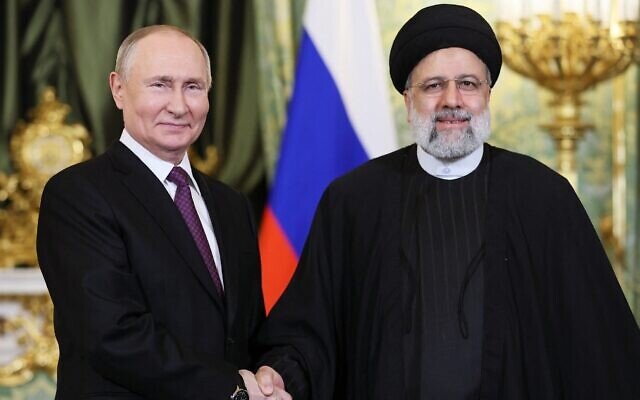Raisi Moscow Visit: A stepping stone to strategic ties

MOSCOW- Iranian President Ebrahim Raisi's current visit to Moscow is logical and well-timed. There is a regional dimension, which is related to the fact that after Vladimir Putin's visit to the Arabian Peninsula it is important to meet with the Iranian leadership as well, in order to demonstrate a balanced approach towards crucial Middle Eastern actors.
Russia and Iran have rather an important agenda, which, firstly, means that the parties are preparing to sign a long-term co-operation agreement at the initiative of the Iranian side, which is expected to cement Russia’s status as a long-term partner of Iran. This document will be signed in the near future.
Besides, a document on Iran's accession to a free trade zone with the Eurasian Economic Union is at the final stage of negotiation, which will remove trade barriers and significantly facilitate trade between Russia and the entire Eurasian commonwealth. BRICS topics are certainly high on the agenda of both countries at the moment. In fact, this is the first summit meeting between the leadership of Russia and the leadership of Iran, a country that was recently invited to join BRICS.
And there are benefits for both sides. First of all, there is an issue related to the agreement on a common stance on oil. As the entry of Iran and Saudi Arabia into BRICS will allow the association to act as an additional platform for developing a consolidated position on oil production, which will be a logical addition to the existing OPEC+ mechanisms.
There are also sanctions, which will probably be one of the key issues from the point of view of both Russian and Iranian agendas. The entry of Saudi Arabia and Iran into BRICS in the near future will contribute to further normalization of relations between Iran and Saudi Arabia, which is beneficial for Russia, because Russia is really interested in the normalization of relations between its two key partners in West Asia. This could facilitate Russia's trade, economic and political interaction with both Tehran and Riyadh.
Leonid Issaev is a candidate of Sciences* (PhD) in Political Problems of International Relations, Deputy Director of the Centre for Stability and Risk Analysis at the HSE University of Russia. *TV BRICS
